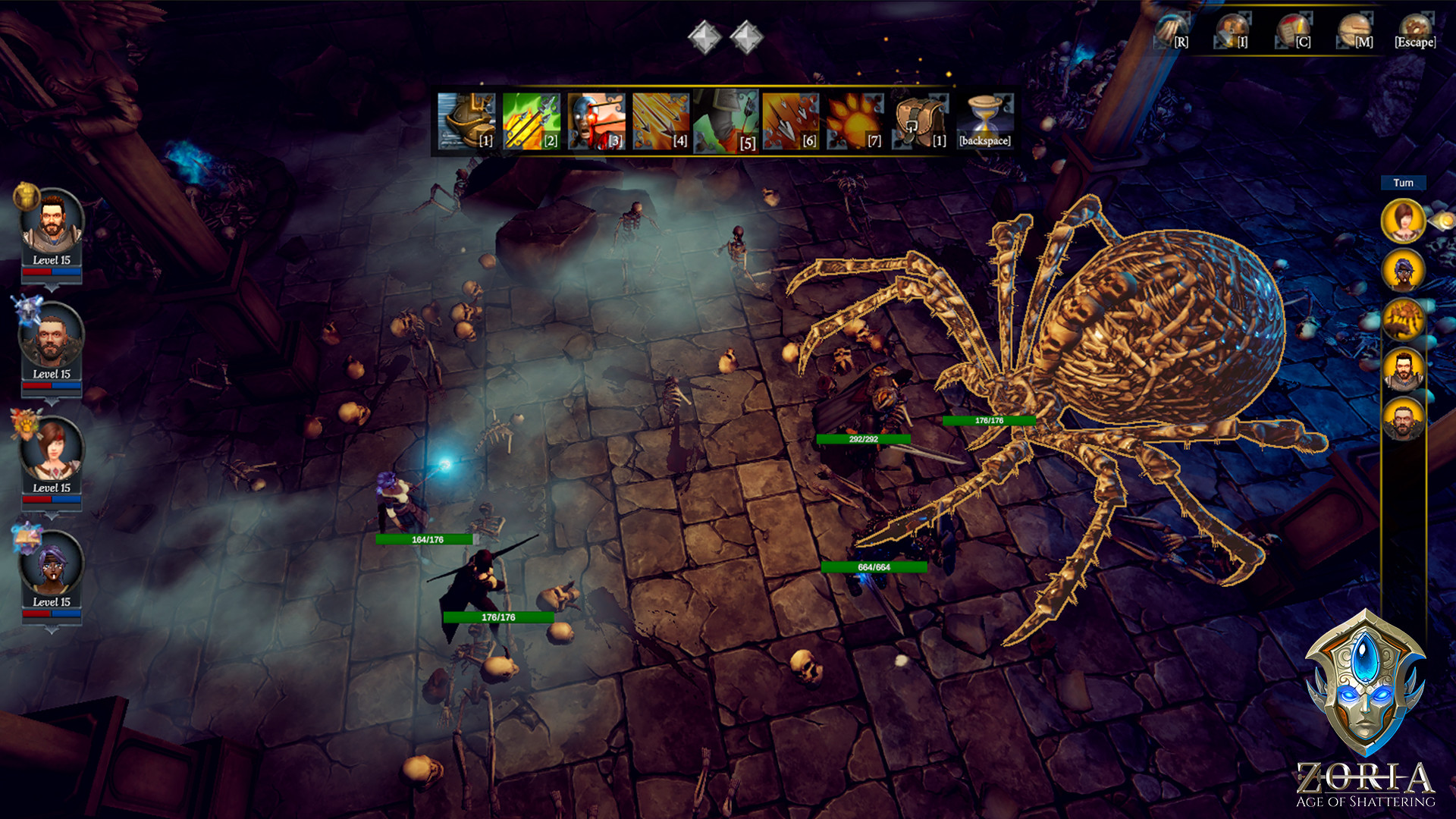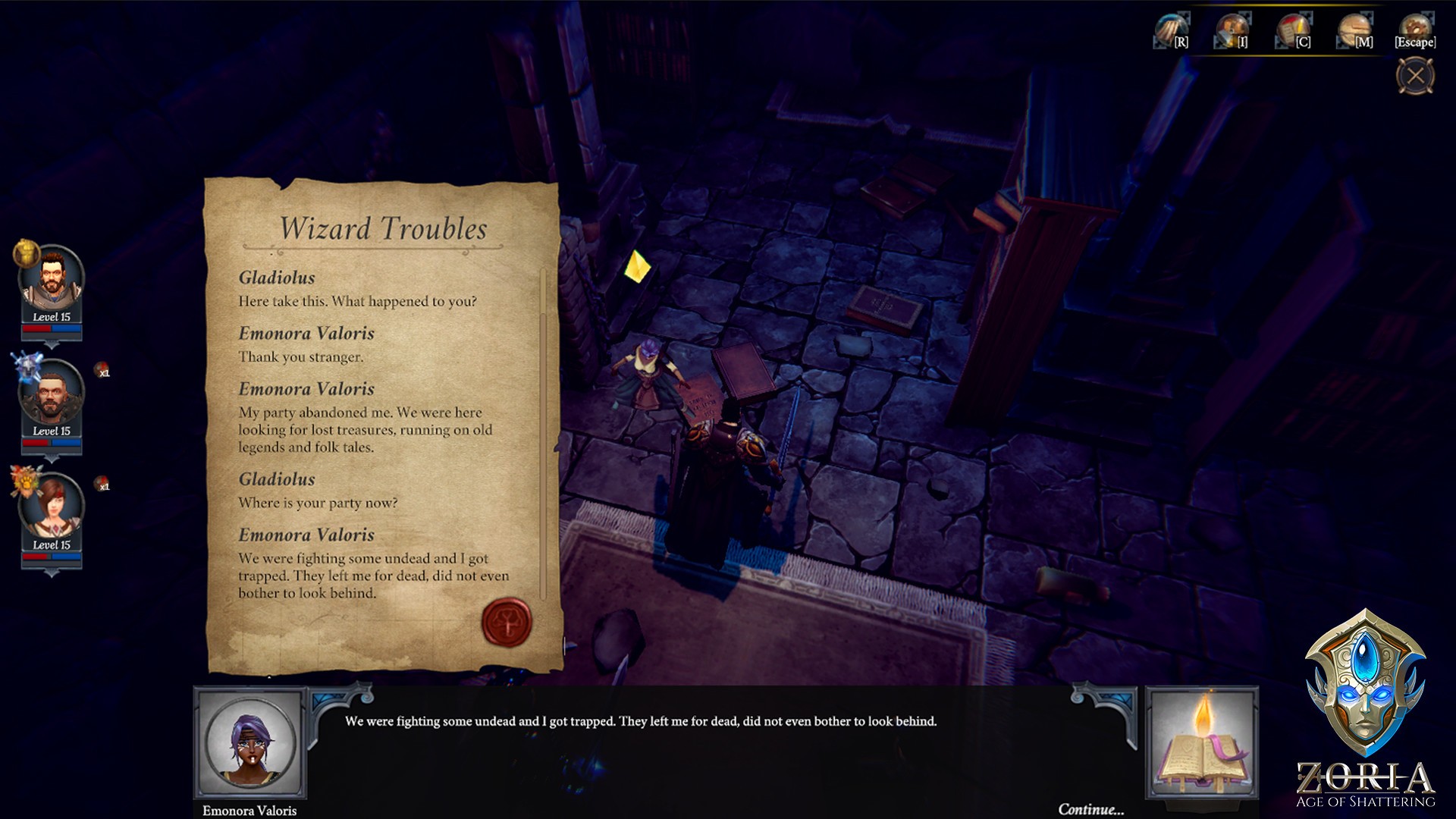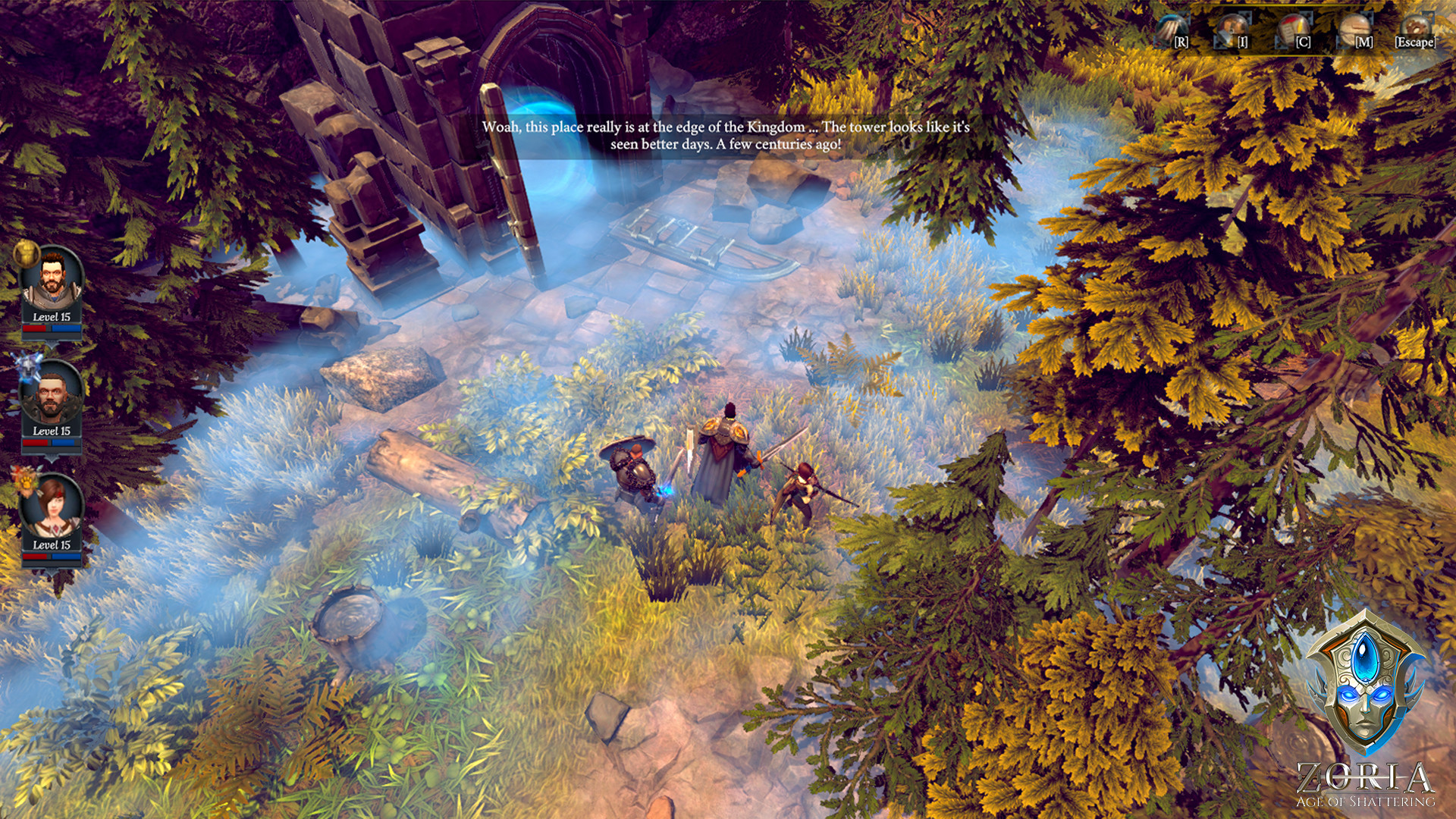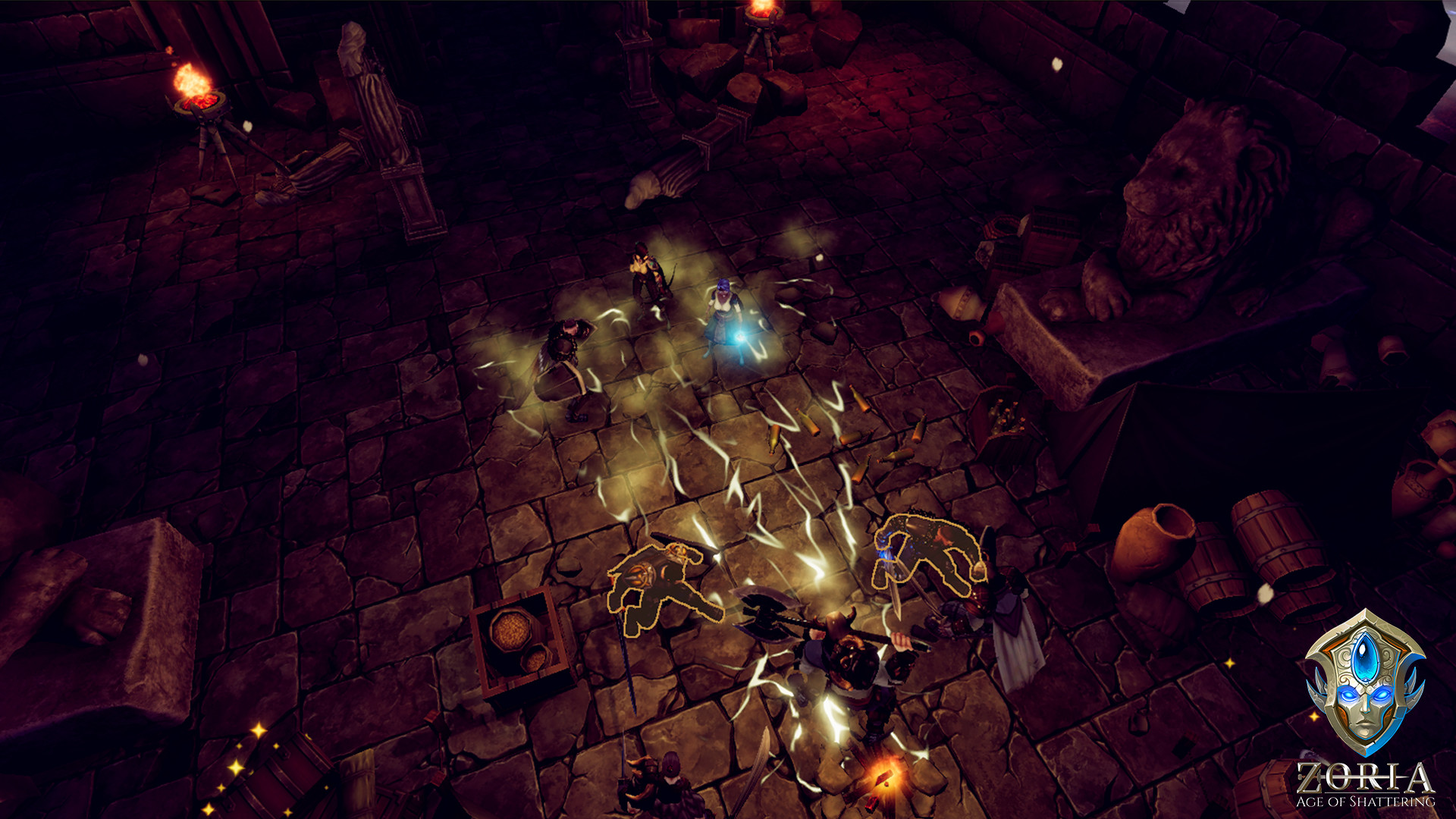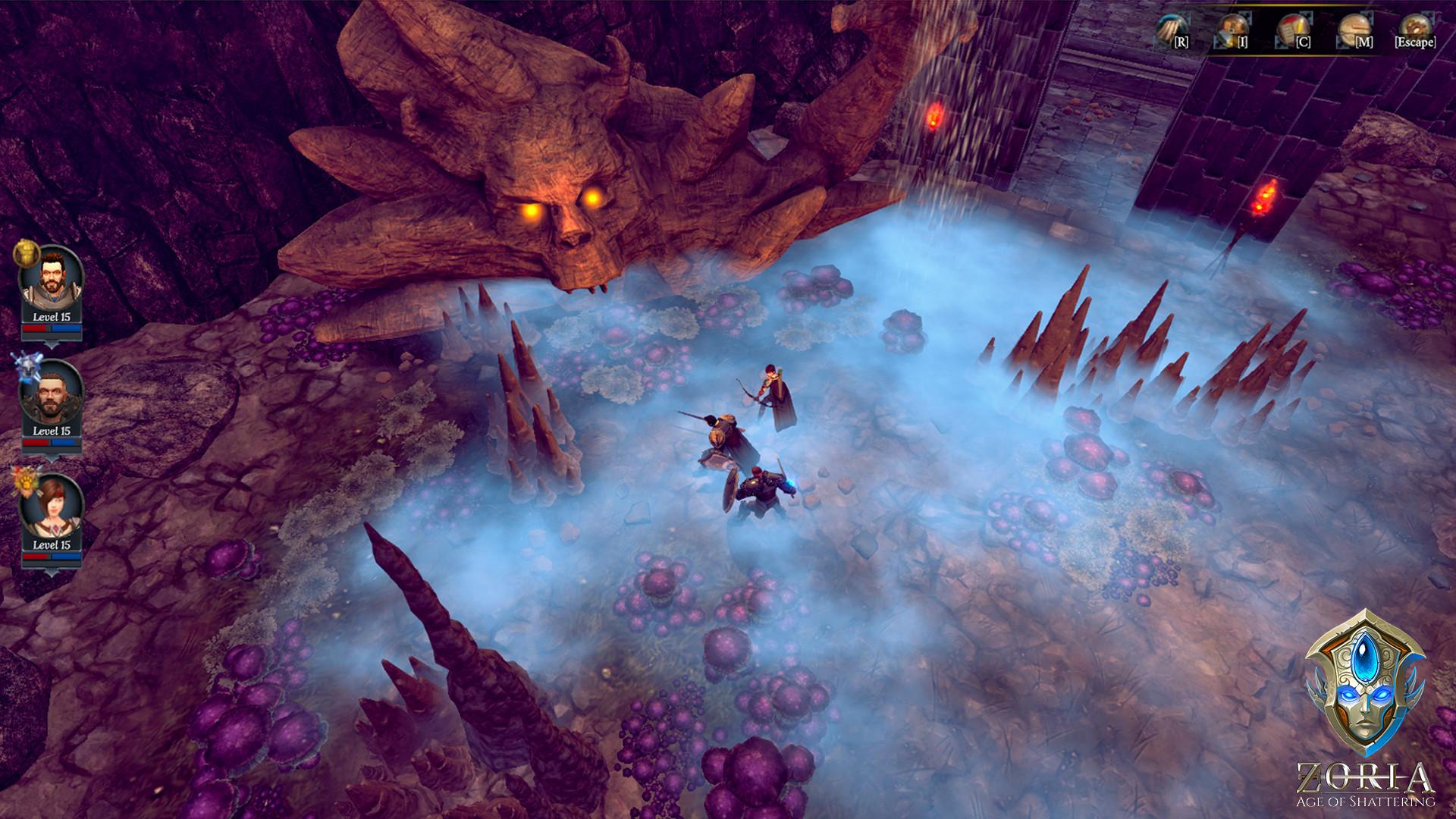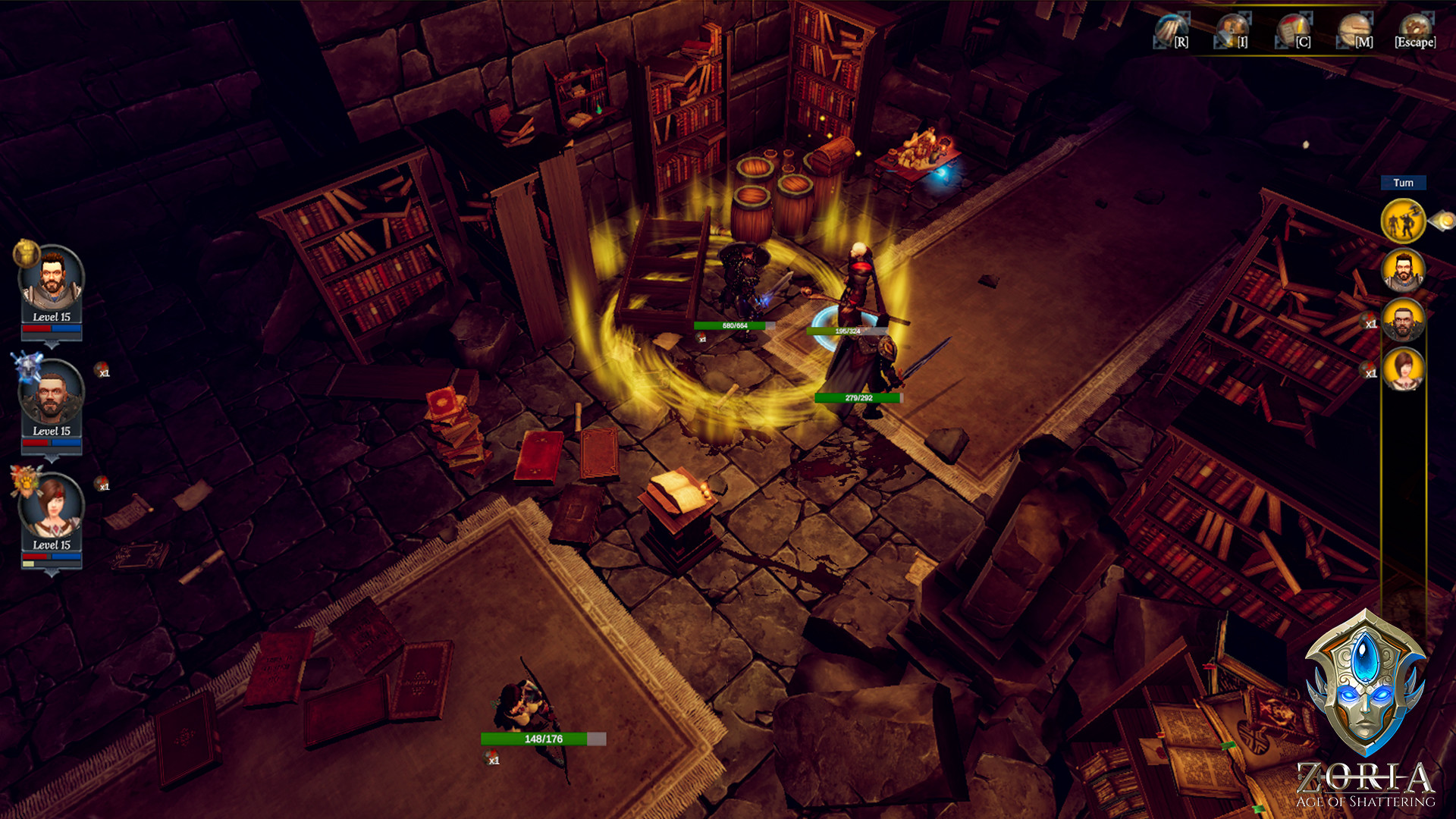Zoria. Home. Mother of all her inhabitants. She provides her children with food to grow, shelter to rest in and also, the harsh lessons of life, so her offspring may learn to fight and protect her gifts to them.
But men, men wanted more.
Zoria’s finest sons and daughters: intelligent, resourceful… violent. Men turned her ores into sword and daggers, and her roots into vile concoctions of poison.
Men wanted more. They craved more land and more food. So they built their homes of stone and wood, driving out the wildlife of its woods and caves. And in those caves they found their instrument of defiance: zerrium.
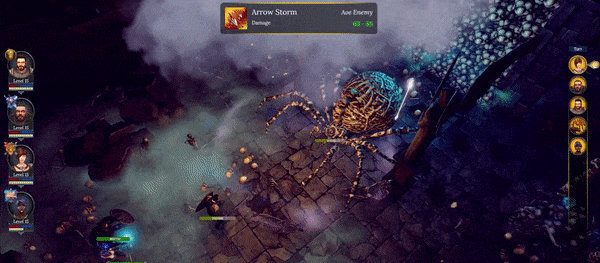
GAMEPLAY
Zoria’s Gameplay is a unique mix of action-adventure RPG and tactical management. Explore the beautiful lands of Zoria, from mountains to the ocean, towns and dungeons, follow the story or discover its secrets.
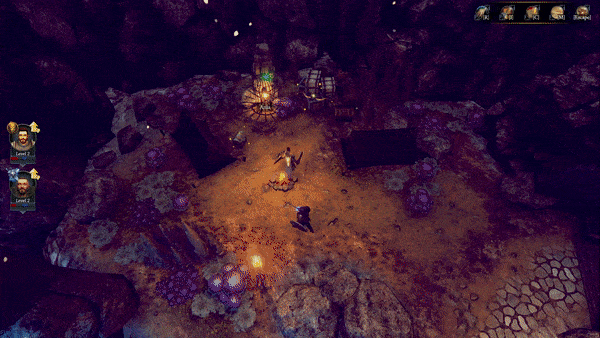
Your outpost is your base, by expanding it you get access to better facilities and the ability to influence more of the world around you while leveling your followers gives you the ability to explore deeper, further into the unknown.
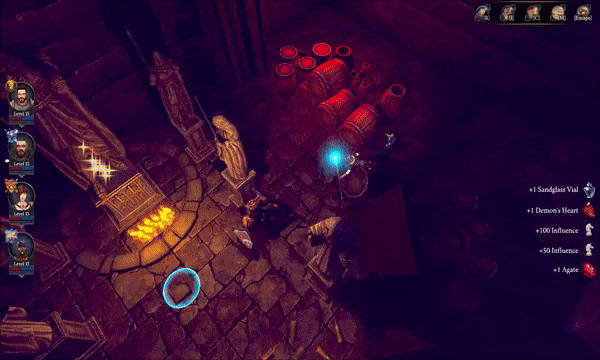
ADVENTURES
All the adventures in the game are hand-crafted, with multiple paths and various options for exploration, depending on the setup of your party and their environment abilities. You can always revisit a dungeon with another party to see previously inaccessible places and finish all the side quests.
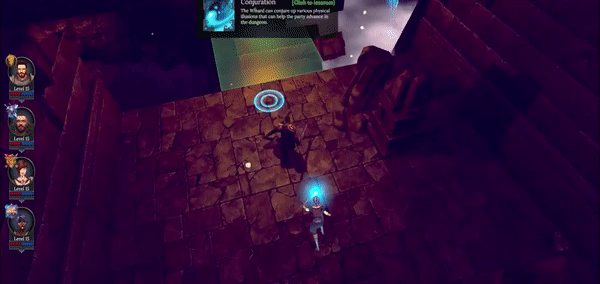
CHARACTERS
You can choose your party from eight different classes, each with a unique skill set both in combat and exploring the world. Magic, ranged attacks, shear power, blocks and stuns, bleed and poisons, magic resistances - all there to explore, use and upgrade.
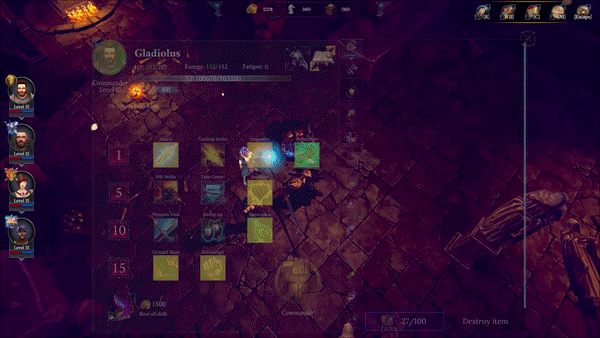
FEATURES:
• Explore a rich, immersive and diverse world: beautifully crafted environments, featuring dense forests, haunting dungeons, golden deserts and many more.
• An epic story driving your experience, with rich and expansive lore. Discover the hidden tales and stories that live on through the people of Zoria and your own companions;
• Plan your moves or just enjoy the ride - a game experience suited both for players eager to just explore and adventure, as well as for those who want a challenging combat with a strong emphasis on strategic thinking and planning.
• Easy to learn crafting system with dozens of unique potions, epic weapons and other curious recipes that can be found throughout the world.
• Elaborate character management: class and character upgrade system, unique skills both in combat, and during exploration. A wide array of character builds for each class will allow you to approach an encounter in your own way.
• Complex base management: build new facilities, upgrade buildings, manage resources and expand your base;
Welcome back, adventurers of the world of Zoria.
We are returning to a more active schedule with our posts so expect some more of these in the following weeks. After our last Devlog there were a number of questions we received on different platforms about the actual gameplay and the role of base building and management in the game.
There isnt much new to say about exploration and combat, beside what can be seen in the Prologue or has been talked about in previous posts: Zoria plays like a CRPG with real-time exploration and movement on the map, and gridless turn-based combat. More about the combat update soon, with all the revamped classes, abilities and improvements to the overall combat experience.

Relevant to this article are 2 aspects of exploration and combat:
Fatigue: is a stat that increases with time spent out in the wilds and is also affected by how many encounters a follower has fought through. The more fatigue a character accumulates the less effective that character gets, with stats decreasing, a little at first and significantly as fatigue gets to high levels.
Supplies: the best way to recover followers health and clear certain effects is the resting mechanic.
Supplies: Resting out in the field takes time and requires supplies, as followers cant go around hungry. Supplies can be found during exploration but can also be obtained through cooking. It is advised to take enough supplies from the Outpost when leaving for an adventure.
One aspect of the game we havent talked a lot about is the base and base management: The Outpost and all the outpost systems. Because exploration, questing and combat are just a part of the game, but what truly differentiates Zoria: Age of Shattering from other CRPG titles is how base and character management is integrated into the game.

Characters:
The player is not limited to a set of companions that will follow throughout the game, as it is usually the case, but is free to recruit many, either from the world, through quests, or from different locations within the game. The only limit to the player is the party size, but the Barracks inside the outpost act as a home to all the followers that are not in the current party.

Every time the player leaves the Outpost, he is free to choose whatever party composition he wants, limited only to what follower are available at that point. This means players can have a party suited to their playstile or to the places they want to visit dark dungeons full of traps where Thieves can come in handy or long forgotten ruins where Mages or Lancers can make exploration easier.
The only constant in the party is the Captain, all the other characters can be switched in or out of the party every time the player returns to the Outpost.
The Barracks:
The heart of the Follower Management system, it is the place where you can equip your troops with the newest weapons you crafted, the most powerful potions, and special items found in the dungeons they conquered. You can also see in this screen your Followers level, stats, status, and the abilities they have unlocked.

The Burrow:
All that adventuring and fighting will increase troops fatigue and with fatigue increasing everything else goes down, including Follower stats and combat efficiency. The best way to recover your troops is to send them to the Moon Flower BURROW for some rest and relaxation actually its the only way. This means not all of your followers will be available all the time, some will need a longer stay than others, depending on their Fatigue level and wounds received during their time adventuring.
Besides its strictly functional role, the Moon Flower Burrows manager, Madame Sybilla is an exotic character with some interesting stories and quests.

The Inn:
The Lucky Dog Inn serves many purposes in the Outpost, being as much a utility building as it is quest hub and a place to meet interesting characters.
The utility aspect of the Inn refers to cooking, as the Inn is the place where all the cooking takes place in the Outpost. Sure, cooking can also be done on the road, but sometimes its preferrable to do that in the Outpost where all the materials gathered are stored.
Another very important factor related to the Inn is recruiting. Since recruiting is done in more than one way, and some quests, depending on the outcome, can offer the option to recruit a character, the Inn is not the only way to expand a players roster of followers, but it can still be quite an effective one.

The Black Cauldron:
As is the case with cooking, alchemy can also be performed on the road as well, for a quick healing potion to get out of trouble but having access to all the materials gathered is most of the times the better option.

The Blacksmith:
Crafting can only be performed in the Outpost and the Blacksmith is the place to do that. Being part of the Outpost facilities, crafting is accessible through the Blacksmith and uses the Outpost inventory, where all the materials accumulated during the players adventures are located.
As with most of the buildings in the Outpost, the Blacksmith can be upgraded, providing access to more recipes or other bonuses.

Storage:
There are two inventories in the game: the partys inventory and the Outposts inventory.
As it is usually the case, the partys inventory is limited.
The Outposts inventory on the other hand is not limited, allowing for the accumulation of large quantities of materials necessary to craft, equip and supply a large roster of followers. Because of this, most crafting will take place at the Outpost, with alchemy and cooking being accessible in the field, but having to rely only on the materials gathered in that sortie.
Building Upgrades:
Most of the buildings in the Outpost can be upgraded, bringing all sorts of bonuses to the player, from faster healing to better weapons and armor available for crafting. Each building has its specific upgrade levels and requirements, that can be related to either resources or specific quests.
Missions:
With a large roster of characters comes the unavoidable problem of favorite characters and when they are not available or not suitable for a certain dungeon, having to rely on lower level or badly geared followers. Also, with many followers crafting and the availability of materials is vital. To answer both of these issues is the task of the Missions system.
The player can send followers that are idle in the Outpost on certain Missions, missions that, if successful award the player with materials, recipes, items, gold and experience for the followers. Some followers can also return wounded or fatigued from the missions, requiring recovery time in the Burrow so its wise to choose wisely the missions and the characters.

This is just a brief description of the systems that make up the base and follower management aspect of the game, there are many more details coming in the following weeks.
If you want to join the conversation, you can join our Discord:
[url=discord.zoriagame.com]
[/url]
Minimum Setup
- OS: Ubuntu 64 bit or other Debian based distributions
- Processor: Intel Core i3 / AMD Ryzen 3 or betterMemory: 4 GB RAM
- Memory: 4 GB RAM
- Graphics: Nvidia GTX 950 / AMD R9 270 or better
- Storage: 10 GB available space
Recommended Setup
- OS: Ubuntu 64 bit
- Processor: Intel Core i5 / AMD Ryzen 5 or betterMemory: 8 GB RAMStorage: 20 GB available space
- Storage: 20 GB available space
[ 6316 ]
[ 5957 ]
[ 1933 ]
[ 2282 ]

